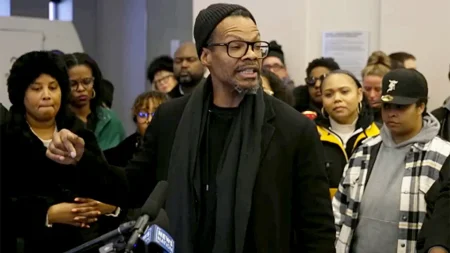British Aid Workers Killed in Afghanistan: The Story of Peter and Barbara Reynolds
By Jessica Mitchell, Senior International Correspondent
Dedicated Educators Caught in the Crossfire: A Life of Service Cut Short
In the rugged landscapes of Afghanistan, where geopolitical tensions have rewritten countless lives, Peter and Barbara Reynolds had become a constant—a British couple who chose purpose over safety, service over comfort. Peter, 80, and Barbara, 76, were more than just expatriates; they were fixtures in Afghanistan’s struggling education system, running a training and education company that had weathered decades of the country’s tumultuous history. Their lives came to a tragic end last week when they were killed in an attack that has sent shockwaves through the international aid community and raised serious questions about the safety of foreign workers who remained after the Taliban’s return to power in August 2021.
The Reynolds had built their lives around a simple but profound belief: education transforms societies from the inside out. Their company, established in the early 2000s following the initial fall of the Taliban, focused on teacher training, curriculum development, and educational infrastructure in rural areas where formal schooling had been virtually non-existent. “They weren’t just providing textbooks or building schools,” explains Mohammad Farid, a former employee who worked with the couple for over fifteen years. “Peter and Barbara were creating sustainable educational ecosystems. They trained local educators who could then train others, creating a multiplier effect that reached thousands of Afghan children, particularly girls.” This approach made them respected figures in both urban centers like Kabul and in the remote provinces where international aid rarely penetrated. When the chaotic American withdrawal in 2021 triggered a mass exodus of foreign nationals and aid workers, the Reynolds made the extraordinary decision to stay, believing their work was more critical than ever under the new regime.
Against All Advice: The Decision That Defined Their Final Years
The Taliban’s rapid takeover of Afghanistan in August 2021 created an inflection point for every foreigner in the country. As military transport planes departed Kabul airport filled with evacuees, diplomatic missions closed, and international organizations withdrew their staff, the Reynolds faced intense pressure from British officials to leave. “We begged them to come home,” their son Michael Reynolds told the BBC from his home in Northumberland. “The Foreign Office called them nearly every day during that period. But they kept saying the same thing: ‘Who will help these children if everyone leaves?'” This sentiment echoed the couple’s longstanding philosophy about their work. Unlike many Western aid efforts that swept in with short-term projects and quick exits, the Reynolds had committed to generational change, understanding that educational transformation requires decades, not funding cycles.
Their decision to remain became even more complex when the Taliban, despite early promises of moderation, began systematically dismantling girls’ education beyond primary school. Former colleagues describe how the couple navigated this challenging new reality, pivoting their organization to focus on permissible educational activities while quietly maintaining networks that supported underground learning for older girls. “They became masters of working in the gray areas,” says Fawzia Koofi, a former Afghan parliamentarian who knew the couple well. “Peter would negotiate with Taliban education officials during the day, finding whatever spaces were still allowed for learning, while Barbara coordinated a network of home schools through trusted local partners.” This delicate balancing act required extraordinary diplomatic skill, cultural sensitivity, and moral courage—qualities the Reynolds had honed through decades of working in complex environments from Somalia to Myanmar before settling in Afghanistan in their later years.
Lives Dedicated to Education Across Conflict Zones
The Reynolds’ journey to Afghanistan represented the culmination of careers spent in education development across conflict and post-conflict zones. Peter, a former headmaster from Yorkshire with a doctorate in educational psychology, and Barbara, who had been a curriculum specialist in Britain’s educational system, first met while working on a UNESCO project in East Africa in the 1970s. Their partnership, both professional and personal, took them through educational projects in Rwanda after the genocide, in East Timor during its transition to independence, and to Kosovo following the Balkan conflicts. “They were drawn to places where education systems had collapsed under the weight of conflict,” explains Dr. Eliza Montgomery of the Institute for International Education. “Their specialty became rebuilding not just schools as physical structures, but reconstructing the human infrastructure of education—the teachers, administrators, and community support systems that make learning possible.”
Afghanistan represented their most challenging assignment and, ultimately, their life’s defining work. Arriving in their sixties when most of their contemporaries were settling into retirement, they established their company with funding from various international donors, including British aid programs, private foundations, and UN agencies. Their approach emphasized local ownership and cultural appropriateness rather than imposing Western educational models. “Peter used to say that the worst thing you could do was build a school that looked like it belonged in Surrey,” recalls Ahmed Rashid, an Afghan educator who worked closely with the couple. “They understood that education had to be rooted in Afghan cultural contexts to be sustainable.” This philosophy extended to their personal lives as well. Unlike many expatriates who lived in heavily fortified compounds and moved about in armored vehicles, the Reynolds lived modestly in a local neighborhood, spoke Dari fluently, and integrated themselves into the community—choices that made them beloved by locals but potentially more vulnerable to security threats.
The Attack and Its Aftermath: Questions and Consequences
Details about the attack that claimed the Reynolds’ lives remain partially obscured by conflicting reports and the opaque information environment of Taliban-controlled Afghanistan. According to initial statements from the Taliban’s interior ministry, the couple was killed by “unknown gunmen” who broke into their residence in Kabul’s Karte Parwan district, an area that has historically housed many foreign workers and diplomatic staff. No group has claimed responsibility for the killings, though speculation has centered on either criminal elements targeting foreigners or more extremist factions potentially affiliated with ISIS-K, which has conducted numerous attacks since the Taliban takeover and opposes any Western presence in the country. “The timing raises particular concerns,” notes Barnett Rubin, a senior fellow at the Center on International Cooperation and longtime Afghanistan expert. “These killings occurred just as the Taliban has been seeking greater international legitimacy and pursuing unfrozen assets. Attacking elderly aid workers undermines those efforts, which suggests either a serious lack of control within Taliban ranks or the work of rival groups.”
The deaths of Peter and Barbara Reynolds represent more than just a personal tragedy for their family, which includes three children and seven grandchildren who had long ago accepted the risks their parents embraced. Their killing signals a potentially dangerous new chapter for the handful of international aid workers and organizations still operating in Afghanistan. Following the attack, several NGOs announced temporary suspensions of their activities, while others have relocated staff to neighboring countries. The British government has renewed calls for any remaining UK citizens to leave immediately. Meanwhile, in villages across Afghanistan where the Reynolds’ educational programs had taken root, informal memorials have appeared—simple gatherings where former students and teachers share stories of the couple’s impact. “They gave us tools when everyone else gave up on us,” said Mariam, a 22-year-old teacher trained through one of their programs, speaking by phone from Bamiyan province. “We will teach others what they taught us. This is how we honor them.” In this way, though their lives were cut short, the educational legacy of Peter and Barbara Reynolds continues—a testament to their belief that knowledge, once planted, grows beyond the reach of guns and politics.







